|
People in need with cancer.
People in need facing extreme prejudice. People in need of mixed abilities. People in need without employment or a chance of employment. People in need growing up in disadvantage. People in need who are suffering economic distress. People in need with mental health issues. People in need without a place to live. People in need who live overseas. People in need who have inadequate education. People in need who are sick. People in need who fear for their lives. People in need who look after people in need. People in need with empty bellies. People in need who have had a life of privilege and find themselves facing tough times. People in need who have never had the privilege of a resource rich environment. We see people in need. Rather than fight about what cause is the most important, and argue among causes, we believe in creating an eco-system that works to help people in need. It starts with an acknowledgement that people find themselves in need in many different ways, at many different times, for many different reasons. Rather than take the needs of any one community as more important than another, we consider the knowledge of one community about the most effective ways to help that particular community as important. Fighting for causes too often means causes fighting against causes. We are here to fight inefficiency. We are here to fight inequality. We are here to fight for people in need. We are not here to fight inequality with only a spreadsheet and a calculator, but we are also not here to fight inequality with only misguided good intentions and a short-lived peak in emotive interest. We are not here to do things the way that they have been done in the past, because we know that we can do better. We are here to fight alongside people who believe that we can do better. We are here to fight alongside people who are tired of seeing wasted money, time and good intentions. We are here to fight for those in need. We would love you to join that fight.
Imagine a scenario where you are in need of help.
Perhaps you are homeless, perhaps you are a struggling single parent. You have been battling this scenario for many years, you have made efforts to improve your situation, but it is exceptionally difficult. From time to time, over the years, people have popped in, asked for your story. They have listened, empathised, express sympathy. You have told them your story, your fears and difficulties. It is emotional labour. Exhausting. You trust that they care. Then they do one thing for you, maybe two… Maybe you never hear from them again. Maybe after the story they don’t do anything. Sometimes, after a big effort of help, for a period of time, when it all gets a bit much for the acquaintance or friend, when the service runs out of resources, or when the family lacks the material means to continue to assist. Then, after the glimmer of hope. After the baring of your soul and exposing your most vulnerable fears and difficulties, nothing. The promise of help, the promise of understanding and a feeling of connection and possibility. Then nothing. Now imagine this happens over and over again. And over and over again. Eventually your ability to trust that good things can happen, that help is real and might work is damaged. Maybe irreparably. When real help turns up, after all of these disappointments. When actual opportunity knocks, how would you have the capacity to not only recognise it, but to take it up wholeheartedly? Consider if surgeons started surgery before they were confident that they knew what was wrong, or that they started doing surgeries without taking the time to do the training and learning about how to diagnose and perform surgery. Consider if they started operating before they had the resources to finish the surgery, stopping halfway and leaving you open and vulnerable on an operating table. We would consider that to be negligent, we would not consider ‘isn’t some surgery better than none’ to be an adequate excuse. Likewise, sometimes rushing into ‘help’ without proper a proper understanding of what is happening, what is needed to help and the resources to help can be worse than waiting, taking your time and ‘not helping’ right away. People in need, do indeed need people to be nice. We can all be nice, if we are already nice, we can all be nicer. It is harder to do good. Doing good requires time, dedication and resources. Doing good requires more time, but being nice can happen right now. If you find yourself in a situation where you feel compelled to do good for someone in need, maybe take a moment to audit your capabilities and the needs of the person you are speaking to. Is it a moment to Be Nice, or is it a moment to Do Good? Be honest with yourself and with the person in front of you. How many botched surgeries would it take for you to distrust surgeons and perhaps end up avoiding life-changing or life-saving surgery because you'd been let down before? If that same surgeon had simply said, "I don't know just now. I can't do anything right at this moment, but I am working to get the skills and resources together to be able to fix this for you or others in the future. Right now I can be nice, be understanding and apologise that the help that you need is not available. I can seek out people who may be able to help, but I'm not sure where they are or where to start. Right now, I can give you a coffee, a sympathetic ear and a moment of empathy and understanding. I am sorry that the help is not right here for you. I will help those who help others so that this does not remain a problem for ever." In the future, the person needing help may indeed have the trust required to buy in to the help, when it finally arrives. Improving the process and outcomes for everyone. We encourage everyone to be nice, on their own time, all the time. We help everyone to do good, ensuring that you become part of a process that provides the assistance that people need, when they need it, for as long as they need it. If you'd like to be a part of the solution. Subscribe and get in touch below. We'd love to have you.
We tell people “It’s ok to not be ok” and that is true, it absolutely is.
We don’t tell people “It’s ok to be poor” Because we know it’s not. Not simply that it’s not ok for them. But that it’s not ok for us to know and do nothing. It’s not ok if we acknowledge that we aren’t doing everything we can to create an environment where everyone has an equal chance of providing for themselves and the people they care about. It’s not ok when we know that it is not simply a matter of ‘laziness’, or ‘not being engaged’, or ‘not caring’. The myth of the feckless poor is only an excuse for people to ignore the issues that disadvantaged communities and individuals face. We would do well to remind one another that poverty is not a lack of character, it’s a lack of cash. Trickle-down economic policies that ignore the responsibility of those with to contribute to improving the lives of those without. In a time of unprecedented economic success and growth, we have a responsibility to say that it’s not ok to be poor. We should be compelled to action to take responsibility for people that are doing it tough, dealing with the inequality of opportunity that affects the 2.9 million Australians that live below the poverty line. Over 1 in 10 Australians. Right now. If we are going to be concerned with mental health outcomes, as we should be, we need to acknowledge the fact that economic distress is a huge factor in emotional and relationship stress and other mental health issues. Feelings of hopelessness, an inability to take control of your life and get after the things you want to achieve, deep and constant feelings of uncertainty, feeling inadequate because you are struggling to provide for the people you care about. These are all very real mental health issues that stem from economic distress. It’s ok to not be ok. It’s not ok for us to not do anything about the factors that lead people to struggle in the first place. Just Be Nice. Be Good. Do Good.
In Italy, as of 2016, stealing a small amount of food in a moment of necessity is not a crime.
This came off the back of a case involving a man at a supermarket who paid for breadsticks and attempted to leave with cheese and sausages in his pocket, to the value of €4.07. He was initially sentenced to a €100 fine and 6 months imprisonment. The court found that the food was taken "in the face of the immediate and essential need for nourishment", ruling that in this case "humanity is more important than punishment, that the right to survival prevails over property". The Italian Court of Cassation judgement "reminds everyone that in a civilised country not even the worst of men should starve". In how many other instances can we argue for the right for survival over property? What would be the implications for taking this view further, and would they be positive? Considering this, How might we be able to address the issue of empty investment properties, squatting, unaffordable medications and waiting lists for essential services that are months long? Rather than an adversarial, legislative imperative created in courtrooms, is it possible to create a culture in the community that see's the right to survival as an important right for all of us? If we had a cultural imperative to look after one another, how might we then manage our resources for the good of us all, taking into account the needs, desires and expectations of both property owners and those in need. Given the strength of each person’s sense of self-preservation, is six months in prison and a €100 fine really a deterrent to a starving man? Does the cost of arrest, prosecution and holding this man in remand & prison really justify not simply having mechanisms in place to ensure he never has to steal €4 of food in the first place? Do situations like this encourage us to look for prevention and support systems over and above intervention and punishment systems? 1 in 10 people in Italy are unemployed, if there aren’t enough jobs for 10% of the population to work, should it be the responsibility of the remainder of the employed population to contribute to their upkeep while the economy rallies? We believe that it makes sense, not only morally, but fiscally. By engaging and effectively managing resources, we are able to provide for people in need without it necessarily costing more than prison, courts, policing, hospitalisations or late-stage interventions. Consider even the cost to the supermarket to pursue this man for a crime. If it takes a few moments of their time to answer questions, surely that costs more in wages than the €4 of food in his pocket. Perhaps even the margins on the food he paid for, contributes to the cost of the food he was unable to pay for. At the Just Be Nice Project, we create innovative ways to assist in the management of property and distribution of excess and available resources to those in need. With voluntary contributions and engagement from our partners, we are working towards a day when people in need, get the help they need, when they need it, for as long as they need it. Regardless of how they come into hardship in the first place. We agree. “In a civilised country, not even the worst of men should starve.” References; http://time.com/4317753/homeless-food-theft-italian-court/ https://www.bbc.com/news/world-europe-36190557 Values alignment is a waste of time, what matters is how you execute your values, and whether you consistently do what is required to build character. If you have a lovely set of values and never action them, you might as well not have values in the first place. If you find values-alignment in a person or organisation you need to make sure that you express those values in the same way, or you are still going to find conflict. Look for character in others, develop it in yourself and reap the benefit of building resilience, a greater sense of self and a more fulfilling environment around you than simply looking to align something as lightweight as values. If you are looking to find ways to develop actionable principles and form character for you, other individuals or your organisation, get in touch and we will contact you regarding our Character-Led program. You matter, We care and remember to Just Be Nice.
Have you ever considered how hard it is for someone who has everything that they say they want or need, but still feels unhappy and down for some reason?
Wondered how someone who seems so happy, so full of life, could ever get to a place where they could harm themselves or those they love? Felt down and out, when logically and physically everything is actually going quite well and found it hard to find your happiness again? Perhaps its because the binary nature of our discussion of happy and sad is a bit off the mark. The language we use to speak about these moods informs our opinions about them, informs the way we seek treatment and the advice we give to those we know regarding moods and emotions. Rather than a dualistic relationship of happy/sad - instead; Neuroscientist Dr. Richard Davidson suggests we should consider that positive and negative feelings exist separate scales of their own. Critical to feelings of well-being, the ability to achieve a positive state is important. Considering a standard Bell Curve distribution of attributes, we can see that it most probably looks as follows.
No doubt we all know some people that somehow maintain their effervescent levels of positivity with ease, while others have a very tough time remaining positive even for a minute at a time. In the middle of the bell curve reside the majority of the population, who either skew towards finding a bit easier or a bit tougher depending on a whole range of physiological, social and psychological factors.
The opposite of not being able to sustain a positive state is not necessarily constantly maintaining a negative one. Rather the second scale relates to our ability to rebound from a negative state. Resilience is not necessarily about rebounding from a negative state to a positive one, it is more about rebounding from a negative state to the middle-ground. A functional place that doesn’t negatively impact your ability to live your life. It might not be a joyous, hands in the hair, dance in the street positivity, but it absolutely is not being stuck down in the doldrums.
Understanding people who occupy opposing ends of these scales simultaneously can be challenging. Those bubbly, vibrant individuals who are mostly full of positive energy, but find it nearly impossible to bounce back from a negative state. Otherwise happy people who suddenly find themselves unable to cope with the onset of a negative state.
Conversely, there are individuals who find it hard to maintain a positive state for any length of time, but always, without fail, bounce back from negative states and show incredible resilience. Each of us has the two scales inside of us. Understanding where we sit on both allows us to better work on solutions for either resilience or positivity. If you are someone who struggles to maintain a positive state, there are many practices you can do to maximise your time there. A healthy diet, exercise, a meaningful social life, meditation and positive reflection, gratitude, avoiding stress etc, can all help. Likewise, if you find yourself struggling to rebound from a negative state, all the above can be of significant use, as can speaking to someone, taking positive actions to remedy a negative situation and perhaps even stoic philosopher Epictetus can offer a thought to mediate on, focusing on what is in your control; “Happiness and freedom begin with a clear understanding of one principle: Some things are within our control, and some things are not. It is only after you have faced up to this fundamental rule and learned to distinguish between what you can and can’t control that inner tranquillity and outer effectiveness become possible.” – Epictetus
Take note of where you and others might sit on these scales, and use them to better judge what areas need the most attention. If you need help bouncing back from a negative state, there is no shame in seeking it, if you are resilient individual who finds it hard to live a joyous life, there is no shame in that either. If you rarely feel positive and can’t bounce back from a negative state, then you know that there are two separate things that you can work on, rather than needing to be positive first, you can first rebound from negativity, then find a positive state (or vice-versa).
When we look at positive/negative as individual characteristics, rather than opposite sides of the same coin, we are provided with wonderful tools to better understand not only our own needs, but the needs of others. Keep smiling, keep looking after each other, keep paying attention and of course, Just Be Nice.
An EAP (Employee Assistance Program) is a service that employers can offer to employees (and sometimes their immediate family) to provide mental health support for issues that may arise in or out of the workplace for employees. Depending on the organisation, it may include access to a counsellor in person or over the phone. Typically there is a hotline available for staff members to call to speak to someone about any issues they may be having. These conversations are confidential, while the employers will know that the service has been used, they will not know who used it, or for what issue.
EAP's were created in the late 1930's to deal with alcoholism and have the value to staff, employers, mental health and productivity inside workplaces was soon made obvious. EAP's can be contacted to discuss issues inside and outside of the workplace. Things like Problems at work:
Any or all of these things can have an adverse impact on how you are feeling, the EAP's are a great place to go if you are unsure of where to take the first step in chatting to someone about issues you may be facing. For employers, EAP's are a great resource, team leader, managers or even work mates can refer each other to these services to talk with professionals about issues that might not be easily spoken about in the workplace. Happy and healthy staff always create a more functional and inspiring workplace, so the EAP's can be a part of a health and wellness framework that looks after the most important people in your business. As an employee, if you have access to a service like this, check to see whether it is available to your immediate family as well. You may wish to speak to an EAP if you need an ear, you may want to give your spouse or kids a chance to speak to someone anonymously and from the comfort of their phone. The EAP will work to identify the issues, help put a plan in place to deal with them and potentially provide ongoing support (depending on the cover that your employer has). Employee Assistance Programs are a great resource, and when we are upskilling workplaces on best practice for mental health outcomes, it is always fantastic to be able to refer people internally to their EAP while improving their inter-personal skills at the same time. Keep talking, Keep looking out for each other and as always, Just Be Nice. For more information or to have the JBNProject come and help your organisation to Just Be Nice, contact us HERE. *Photo by Taylor Grote on Unsplash |
Just Be NiceA collection of articles relevant to pursuing the effective execution of altruism in the search for equality of opportunity. Archives
February 2020
Topics
All
|
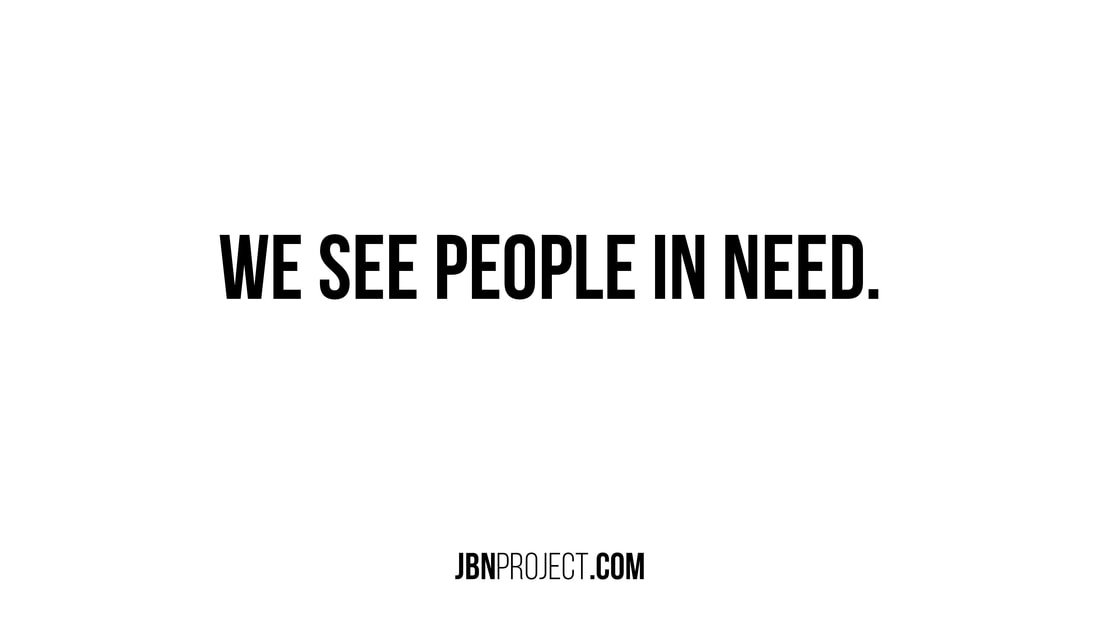
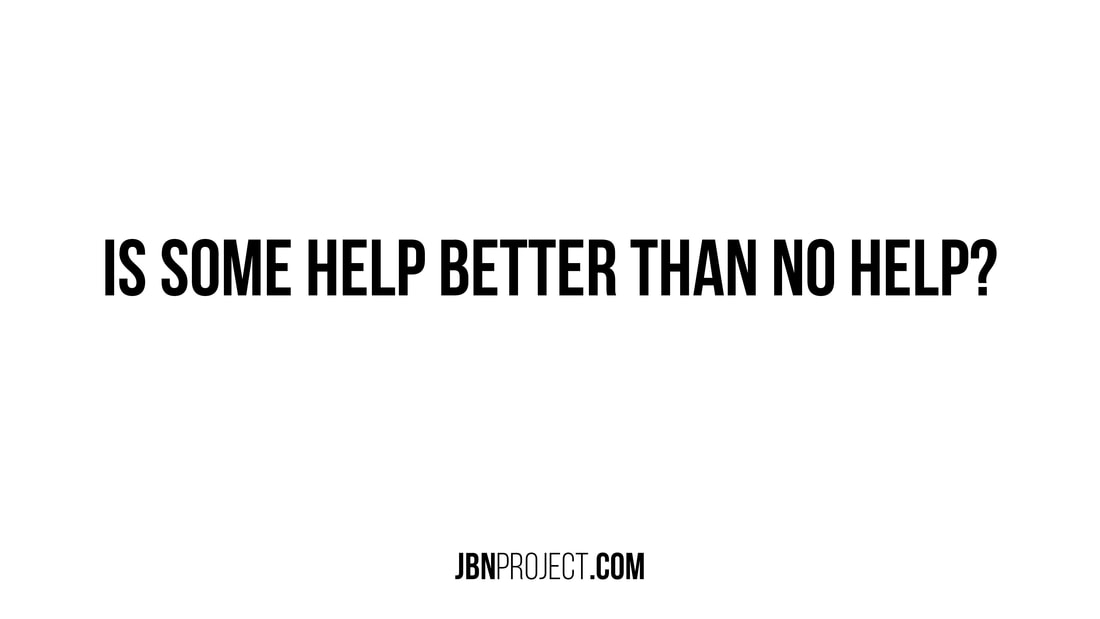
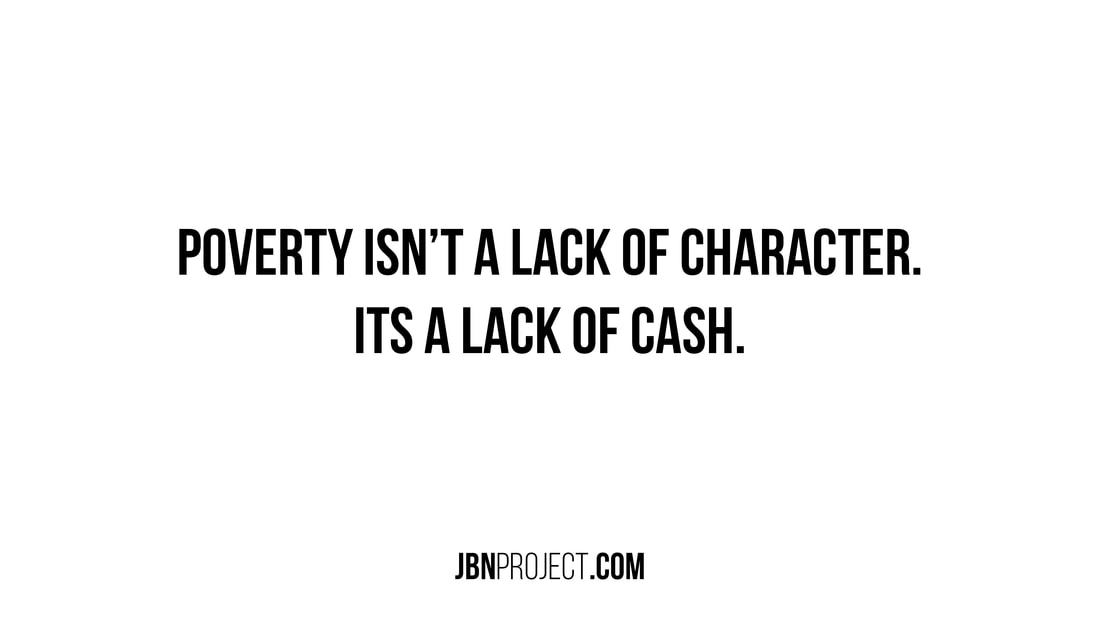
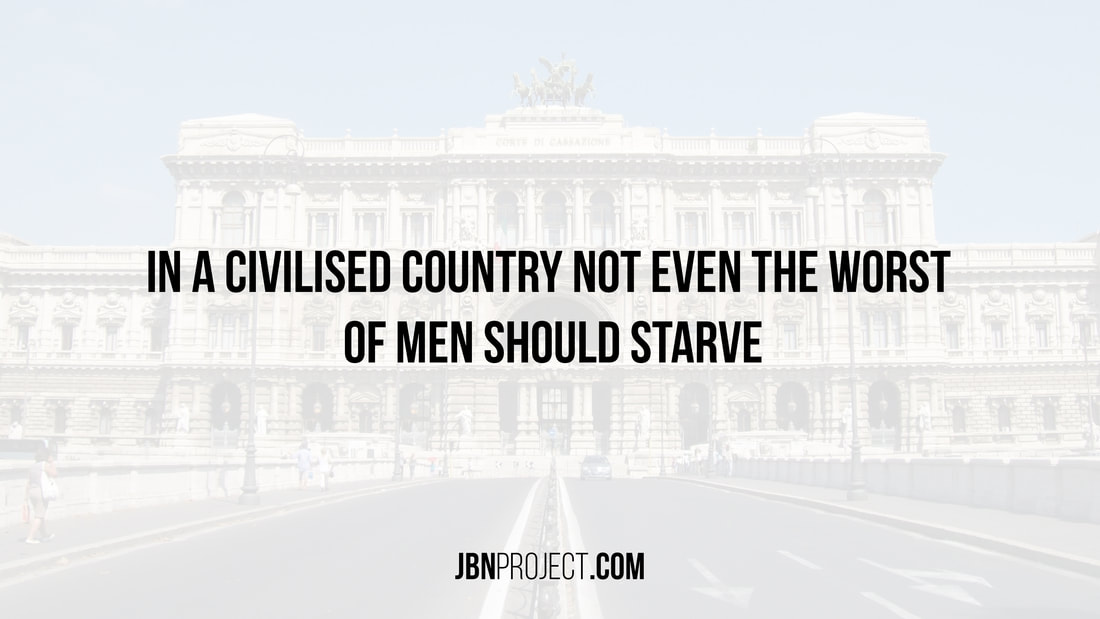
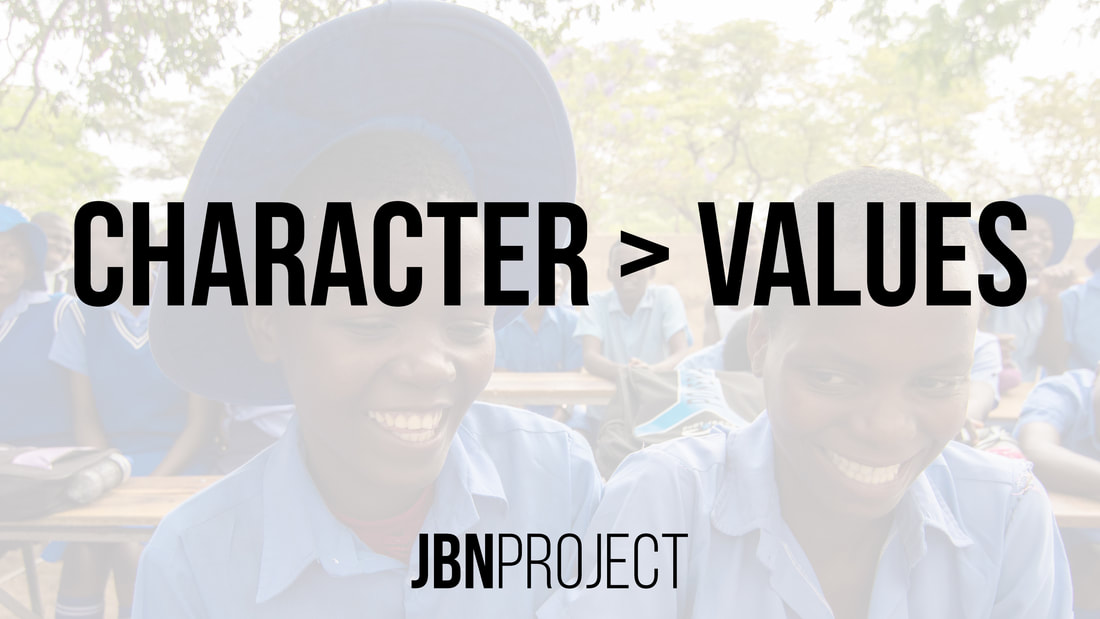
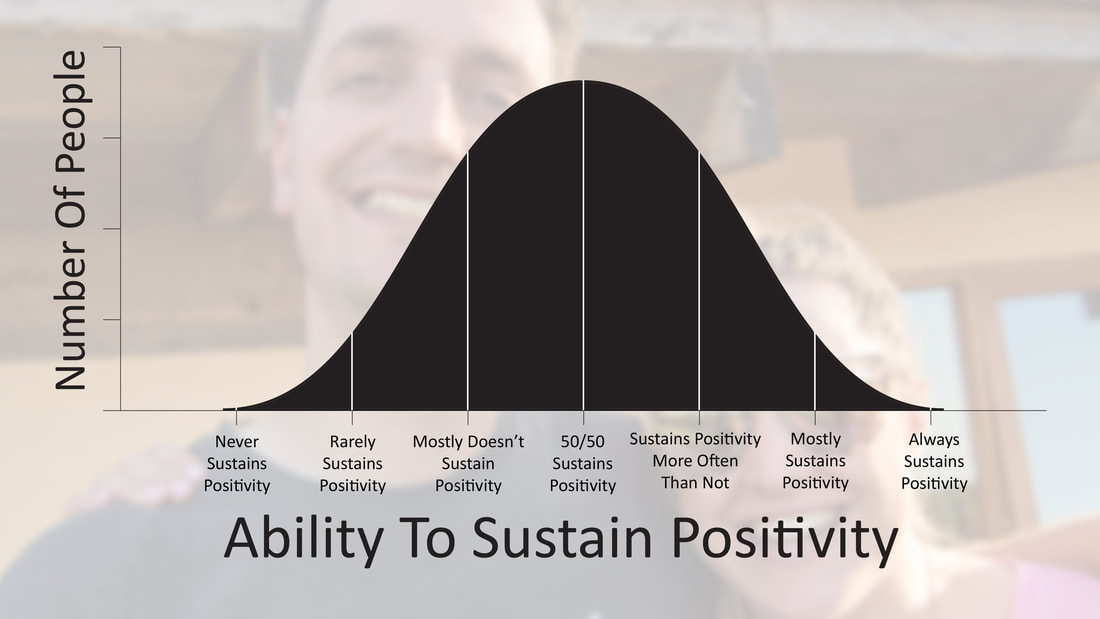
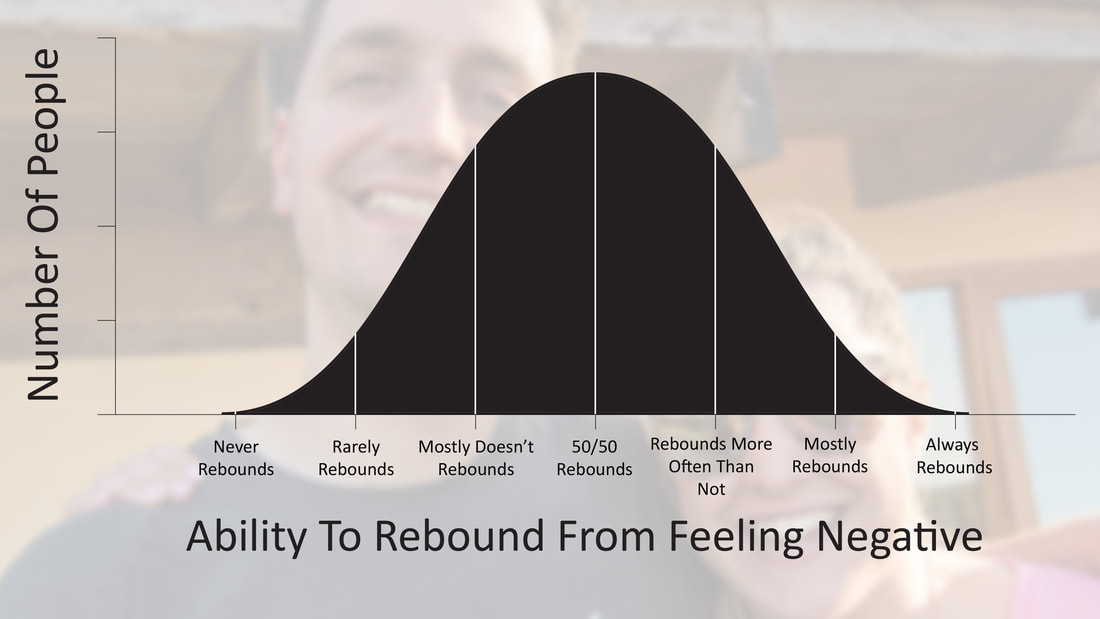
 RSS Feed
RSS Feed